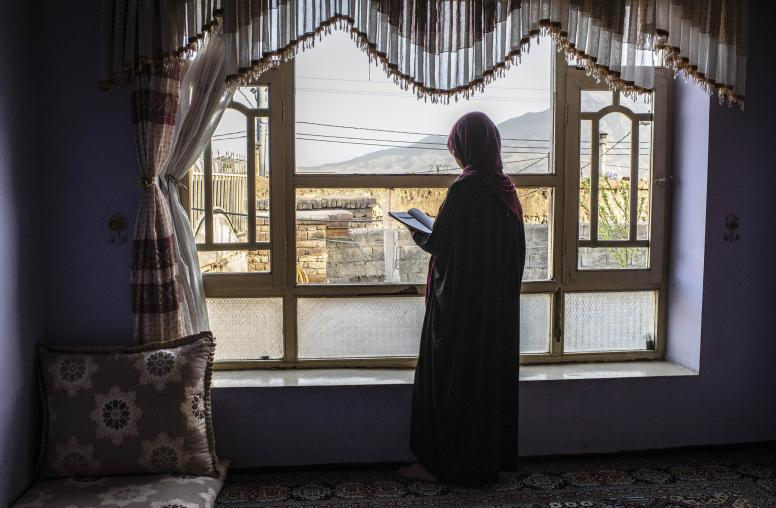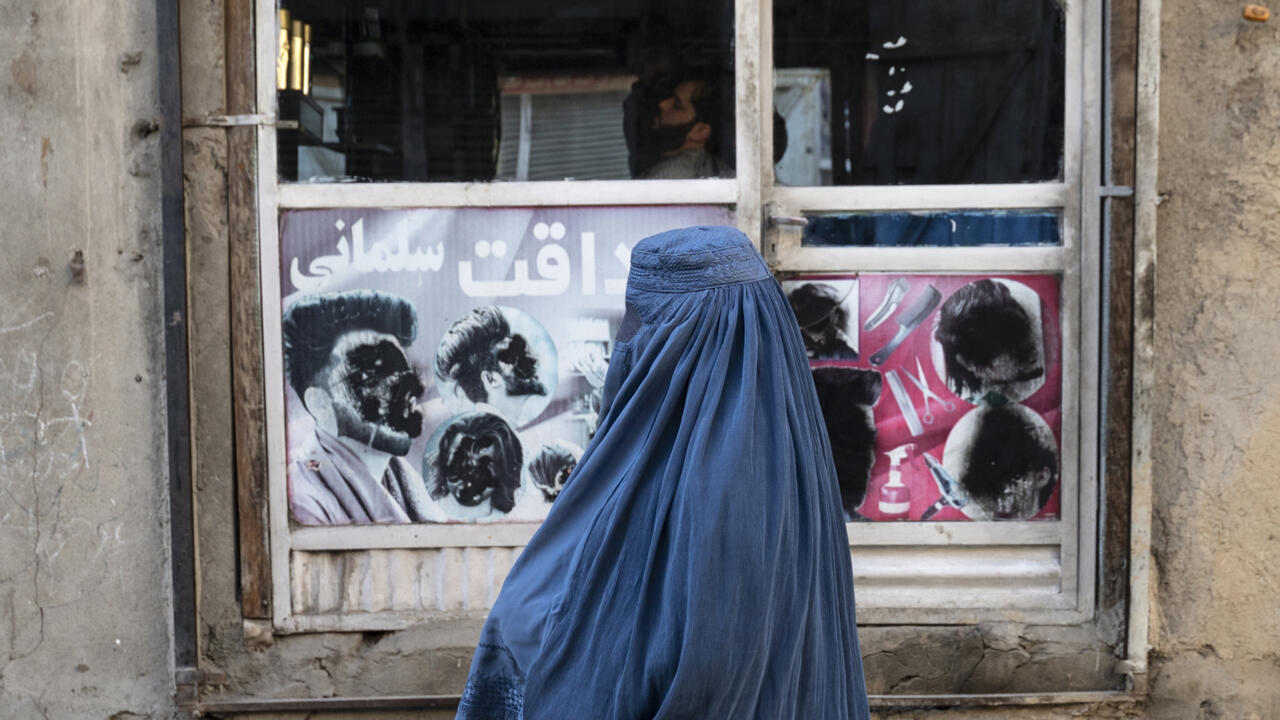The Taliban’s strict control over the lives of women and girls in Afghanistan has been widely criticized for its severity, and the latest decree from the group’s supreme leader has only further reinforced this harsh treatment.
Recently, the Taliban announced a ban on the construction of windows in residential buildings that overlook areas where women are typically present, such as courtyards, kitchens, and water collection points. This move is emblematic of the Taliban’s broader efforts to restrict women’s visibility in society and further isolate them from public life.
This new policy, introduced by the spokesperson Zabihullah Mujahid, has been met with a range of reactions, from skepticism to condemnation.
According to the Taliban, the presence of windows that allow a view into women’s private spaces could lead to “obscene acts,” a justification that reveals much about the regime’s worldview and its attitudes towards women.
The Decree and Its Rationale
The recent ban on windows overlooking women’s spaces has been framed as an effort to prevent “obscene acts” and maintain moral decorum. According to the group’s official spokesperson, the sight of women working in domestic spaces—whether it be in the kitchen, courtyard, or while fetching water—can potentially lead to immoral behavior.
The Taliban’s understanding of morality is strictly tied to its interpretation of Islamic law, which, under its rule, emphasizes the need to keep women hidden from the public eye.
As per the decree, any new construction projects must avoid building windows that face these traditionally female areas. In situations where such windows already exist in residential buildings, owners will be instructed to either block the view with a wall or obscure the view using some other means.
Read : Afghani Rubab Near Extinction as Taliban Bans Music in the Country
The move is part of the Taliban’s broader campaign to ensure that women’s activities remain private and out of sight, further reinforcing their separation from public life.
Read : Poland is Accusing German Police Over Dropping Afghan Migrants Across the Border
The Taliban’s stance on this issue seems to be rooted in an extreme interpretation of Islamic principles, particularly those relating to modesty.

The notion that the mere sight of women can lead to obscene acts underscores belief in the inherent danger of women’s visibility and their need for constant surveillance and control. For the country, the female body is not just a private matter but a political tool to maintain control over Afghan society.
The Taliban’s Record on Women’s Rights
Since the country took control of Afghanistan in August 2021, their policies toward women have been among the most regressive in the world.
One of the first actions taken by the Govt was to impose a strict dress code for women, requiring them to cover themselves fully when in public. This was followed by the closure of girls’ secondary schools and the banning of women from many areas of public life, including employment and education.
The United Nations has referred to the Taliban’s policies as “gender apartheid,” a term that reflects the systemic discrimination faced by Afghan women under the group’s rule.
In addition to the ban on education and employment, the Taliban has also restricted women’s access to parks, public spaces, and even hospitals in some areas. Women have been increasingly confined to their homes, with little to no freedom to move about or participate in society.

The ban on windows overlooking women’s spaces is yet another attempt by the Taliban to assert control over women’s lives. It represents the latest step in a broader campaign to erase women from the public sphere, a move that is in line with the regime’s broader goal of re-establishing its vision of an ultra-conservative society.
The Taliban’s emphasis on keeping women hidden from view is a reflection of its authoritarian rule and its desire to maintain a rigid, hierarchical social structure where women remain subjugated and invisible.
Impact on Afghan Society and International Reaction
The Taliban’s policies toward women have had profound effects on Afghan society, both on a personal and societal level. Women in Afghanistan, who were once active participants in education, work, and public life, are now systematically excluded from many of the opportunities and freedoms they once enjoyed.
This exclusion has led to a significant decline in the overall well-being of women and girls in the country, with many facing isolation, poverty, and restricted access to essential services.
The ban on windows, while seemingly trivial, is a clear indication of the lengths to which the Taliban is willing to go to ensure that women remain confined to their homes.
The policy reflects the Taliban’s broader worldview, where women are not seen as equals to men and are instead treated as objects to be hidden away. It is a reflection of the Taliban’s rigid and narrow interpretation of Islam, which is used to justify its oppressive measures against women.

The international community has reacted strongly to the Taliban’s policies, with many countries and organizations condemning the group’s treatment of women. The United Nations, human rights organizations, and foreign governments have repeatedly criticized the Taliban for its actions, calling for the restoration of women’s rights in Afghanistan.
However, despite the widespread condemnation, the Taliban has shown little willingness to change its policies. Instead, it continues to tighten its grip on Afghan society, with women being the primary targets of its oppressive measures.
The situation in Afghanistan has led to an exodus of many women seeking refuge in other countries, as they flee the harsh conditions imposed by the Taliban.
Despite the international community’s efforts to provide aid and support, the reality for women in Afghanistan remains grim. The Taliban’s policies have created a climate of fear and repression, where women’s freedoms are systematically stripped away in the name of morality and religious purity.
A Bleak Future for Women in Afghanistan
The Taliban’s ban on windows overlooking women’s spaces is just one example of the many oppressive measures that have been put in place since the group came to power in Afghanistan.
The Taliban’s vision for Afghan society is one where women are invisible, confined to their homes, and denied basic human rights. The regime’s policies continue to have a devastating impact on women’s lives, and it seems unlikely that there will be any meaningful change in the near future.

For Afghan women, the future looks bleak. The Taliban’s refusal to back down from its repressive measures means that women in Afghanistan will continue to face extreme restrictions on their freedom and mobility.
Until the international community takes stronger action to hold the Taliban accountable for its treatment of women, it is unclear when, or if, these women will ever regain the rights and freedoms that were once theirs.
The Taliban’s latest decree on windows is a stark reminder of the authoritarian nature of the regime and the lengths to which it will go to control every aspect of life in Afghanistan.
Women, who are already living under the constant threat of violence and repression, now face the added burden of being forced into even greater invisibility. This policy, like many others, serves to further entrench the oppressive system that the Taliban has imposed on Afghan society.
let’s enjoy few years on earth with peace and happiness….✍🏼🙏

